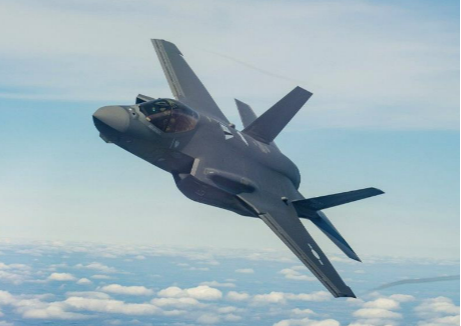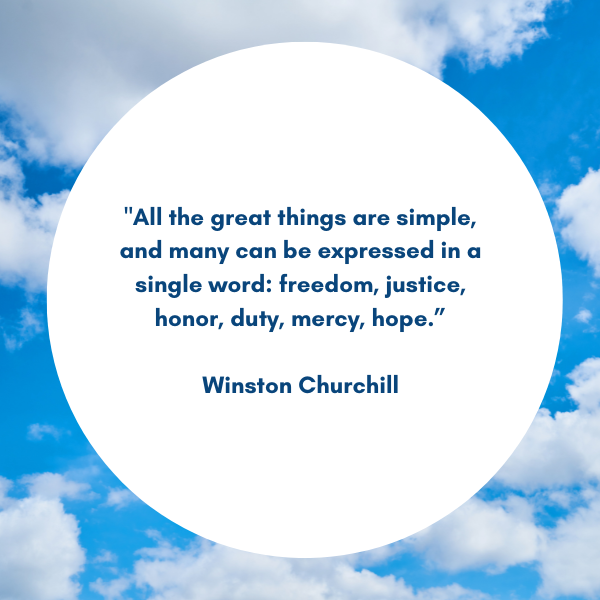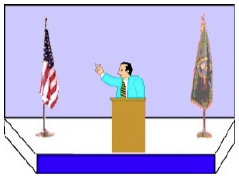CHAPTER 2: Conduct, Customs and Courtesies
CADET STANDARDS
Cadets WILL:
Treat other cadets with dignity and respect. Take care of each other.
BE ON TIME!
Bring all required materials to class every day including your Chromebook, a pen or pencil and notebook paper.
Comply with all legitimate directions given by flight commanders, flight sergeants, cadet officers, class leaders or any cadet(s) placed in charge.
Request permission before leaving their seat or the classroom during class time.
Raise their hand and wait to be acknowledged before speaking.
Participate in all classroom activities.
Strive to improve themselves and the cadet corps. Offer constructive suggestions to make things better.
Place all trash in a trash can prior to leaving the classroom.
Respect public and private property.
Request permission from an instructor before entering the instructor offices.
Remove sunglasses and all headgear before coming indoors, including military hats.
Use the chain of command to answer questions or resolve problems (see Chapter 7).
Notify an instructor, the flight commander or the senior ranking cadet if they become ill.
Cadets WILL NOT:
Disrupt the class or interrupt others while they are speaking.
Use vulgar, obscene or profane language or make racial slurs, sexist comments or improper gestures.
Throw anything in the classroom.
Chew gum in the classroom or in formation, or bring food into the classroom without permission from an instructor. Drinks with a lid are allowed as long as they do not become a distraction.
Sleep in class – if you feel drowsy, stand quietly in the back of the room.
Work on assignments from other classes without permission from the instructor.
Use cameras, cell phones, music players, headphones or other electronic devices during class without permission from the instructor.
Engage in horseplay.
Sit or place feet on tables or desktops, place feet on chairs or tilt chairs backwards on rear legs.
Write on the classroom boards or post notices without approval from an instructor.
Disturb pictures or bulletin board items, or remove markers/erasers.
Write on or deface tables, desktops, chairs, walls, books, etc.
GRADES
Cadets are expected to practice “Excellence in All We Do” in all their classes. Cadets must be passing ALL classes to participate in field trips or on special teams. Cadets holding a leadership position must also maintain passing grades in all classes. Cadets who are failing one or more classes will be placed on probation until they achieve passing grades. While on probation, cadets will not be allowed to participate in special teams practices or performances. In addition, cadets on probation will revert to their permanent rank.
ATTENDANCE
Timely attendance reflects your attitude and interest. If you anticipate being absent or late, advise your instructor. You must determine what work you missed during your absence and arrange to make it up.
PARTICIPATION
On scheduled drill or physical training days, all cadets must participate. Cadets with an injury or condition that prevents participation may be excused for up to three days with a note from a parent/guardian. Only a note from the school nurse or a medical doctor can excuse a cadet for a longer period.
DIGNITY AND RESPECT
The corps can accomplish its mission only if each person treats others with dignity and respect. We build leaders and, as such, we must exemplify the Air Force Core Values and ensure that no cadet is mistreated.
We do not use exercise as a form of punishment, unnecessarily embarrass cadets in front of their peers, or assign degrading tasks. We do not use disciplinary exercises such as push-ups, deep-knee bends, sit-ups, low crawls, or any other activity that has the potential to place a student in a strenuous or exhausting position. We do not initiate unnecessary physical contact including poking, hitting, thumping, pushing or grabbing. We do not threaten physical violence.
We do not use language that degrades, belittles, demeans, or slanders an individual or group based on color, national origin, race, religion, ethnic group, gender, age, or physical stature. We do not use profanity or crude language, and we avoid language that establishes a hostile environment or promotes sexual harassment.
HAZING
Hazing/Bullying is strictly forbidden. This includes any activity that is cruel, abusive, humiliating, oppressive, demeaning, or harmful. Encouraging or coercing another cadet to carry out any such activity is also considered hazing. Hazing does not always involve physical contact among or between cadets; it can be verbal or psychological in nature. Actual or implied consent to acts of hazing does not make it right. Any form of hazing or bullying may result in disenrollment of the cadet(s) involved. Report suspected incidents of hazing or bullying to an instructor immediately.
FRATERNIZATION
Fraternization is an inappropriate relationship between cadets of different rank or class standing. Specifically, upperclass cadets that hold a position of authority (ALL cadet officers, and any cadet NCO filling a leadership position) will not become involved in a relationship with another cadet that could compromise the chain of command, result in the appearance of partiality, or otherwise undermine good order, discipline, authority, or morale. This includes, but is not limited to, serious emotional relationships.
PUBLIC DISPLAY OF AFFECTION (PDA)
At no time, while in uniform, will cadets kiss, hold hands, embrace, walk arm-in-arm, or engage in any other public display of affection that may reflect unfavorably on the AFJROTC program. These rules apply on or off campus, between two cadets AND between a cadet and any other student.
FAILURE TO MAINTAIN STANDARDS.
Cadets who consistently fail to maintain acceptable standards (including uniform wear and grooming) or display a pattern of poor behavior (rule violations, ISS assignments, etc) may:
Lose the privilege of participating in AFJROTC activities (special teams, field trips, Flight Olympics, etc).
Be demoted to a lower rank and/or reassigned from positions of leadership.
Be removed from AFJROTC.
MILITARY COURTESY
When addressing AFJROTC instructors, higher-ranking cadets, other teachers or school officials, begin with “Ma’am” or “Sir”. The correct response to a “yes” or “no” question is “Yes, Ma’am/Sir” or “No, Ma’am/Sir”. Address all cadets by their cadet rank. The rank must be preceded by the word “Cadet.” Example: Cadet Major Smith, Cadet Airman Jones. When in uniform, walk, stand or sit to the left of those of higher rank.
SALUTING
The salute is a courteous and respectful greeting exchanged between military personnel. It is one of the oldest traditions binding military professionals together.
When you are in uniform outdoors:
Salute higher-ranking cadet officers in uniform, and all military officers in uniform.
Begin the salute in time to allow the higher-ranking cadet/military officer to return it.
If you are carrying articles in both hands, you do not need to salute, although you will be saluted if you are the higher-ranking cadet. The person being saluted should verbally acknowledge the salute.
In or out of uniform, salute whenever you report in to an instructor, higher-ranking cadet, board or panel. Salute the inspecting officer when reporting for uniform inspection.
When subordinate cadets make saluting errors, correct them in a courteous and helpful manner.
HONORING THE FLAG
If you are outdoors in uniform and hear the National Anthem, or see the American Flag being raised or lowered, face the flag (if visible) or the music, come to attention and salute. Hold the salute until the music ends or until the flag has reached the top or base of the flagpole. If you are in civilian clothes, come to attention and place your right hand over your heart. When you are in uniform, indoors, stand at attention. Do not render the hand salute or place your right hand over your heart. These rules also apply when reciting the pledge of allegiance.
RAISING AND LOWERING THE FLAG
Raising the flag. One cadet will attend the halyards, while another cadet attaches the flag to the clips. (If available, a third cadet will help hold the flag.) Take care that no portion of the flag touches the ground. The flag should be raised quickly. Once the flag is clear of the ground, the cadets that were holding the flag come to attention and execute present arms until the flag reaches the top of the flagpole.
Lowering the flag. One cadet will attend the halyards. All other cadets stand at attention and execute present arms until the flag is low enough to grasp. The flag should be lowered ceremoniously (slowly). Take care that no portion of the flag touches the ground.
Half-staff. When flown at half-staff, the flag should first be raised (quickly) to the top of the flagpole for an instant and then lowered (slowly) to a position centered between the top of the flagpole and the ground. To assist in positioning the flag, one cadet should stand away from the flagpole and direct the cadet attending the halyards. At the end of the day, the flag should again be raised to the top of the flagpole before it is lowered.



